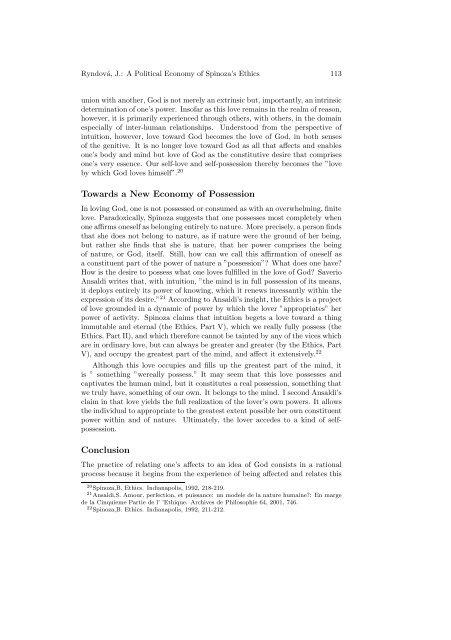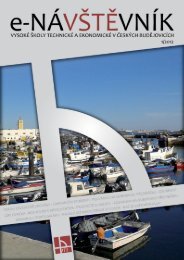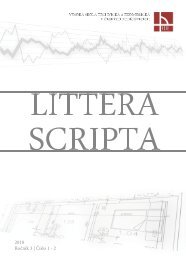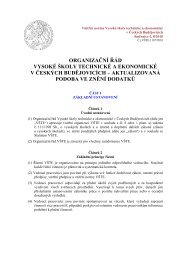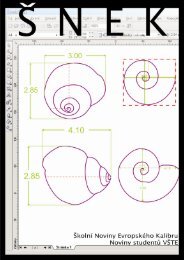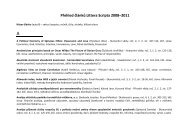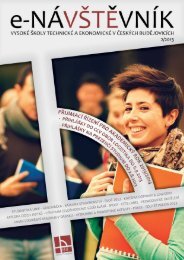Untitled - Vysoká Å¡kola technická a ekonomická v Äeských ...
Untitled - Vysoká Å¡kola technická a ekonomická v Äeských ...
Untitled - Vysoká Å¡kola technická a ekonomická v Äeských ...
You also want an ePaper? Increase the reach of your titles
YUMPU automatically turns print PDFs into web optimized ePapers that Google loves.
Ryndová, J.: A Political Economy of Spinoza’s Ethics 113union with another, God is not merely an extrinsic but, importantly, an intrinsicdetermination of one’s power. Insofar as this love remains in the realm of reason,however, it is primarily experienced through others, with others, in the domainespecially of inter-human relationships. Understood from the perspective ofintuition, however, love toward God becomes the love of God, in both sensesof the genitive. It is no longer love toward God as all that affects and enablesone’s body and mind but love of God as the constitutive desire that comprisesone’s very essence. Our self-love and self-possession thereby becomes the ”loveby which God loves himself”. 20Towards a New Economy of PossessionIn loving God, one is not possessed or consumed as with an overwhelming, finitelove. Paradoxically, Spinoza suggests that one possesses most completely whenone affirms oneself as belonging entirely to nature. More precisely, a person findsthat she does not belong to nature, as if nature were the ground of her being,but rather she finds that she is nature, that her power comprises the beingof nature, or God, itself. Still, how can we call this affirmation of oneself asa constituent part of the power of nature a ”possession”? What does one have?How is the desire to possess what one loves fulfilled in the love of God? SaverioAnsaldi writes that, with intuition, ”the mind is in full possession of its means,it deploys entirely its power of knowing, which it renews incessantly within theexpression of its desire.” 21 According to Ansaldi’s insight, the Ethics is a projectof love grounded in a dynamic of power by which the lover ”appropriates” herpower of activity. Spinoza claims that intuition begets a love toward a thingimmutable and eternal (the Ethics, Part V), which we really fully possess (theEthics, Part II), and which therefore cannot be tainted by any of the vices whichare in ordinary love, but can always be greater and greater (by the Ethics, PartV), and occupy the greatest part of the mind, and affect it extensively. 22Although this love occupies and fills up the greatest part of the mind, itis ” something ”wereally possess.” It may seem that this love possesses andcaptivates the human mind, but it constitutes a real possession, something thatwe truly have, something of our own. It belongs to the mind. I second Ansaldi’sclaim in that love yields the full realization of the lover’s own powers. It allowsthe individual to appropriate to the greatest extent possible her own constituentpower within and of nature. Ultimately, the lover accedes to a kind of selfpossession.ConclusionThe practice of relating one’s affects to an idea of God consists in a rationalprocess because it begins from the experience of being affected and relates this20 Spinoza,B. Ethics. Indianapolis, 1992, 218-219.21 Ansaldi,S. Amour, perfection, et puissance: un modele de la nature humaine?: En margede la Cinquieme Partie de l’ ’Ethique. Archives de Philosophie 64, 2001, 746.22 Spinoza,B. Ethics. Indianapolis, 1992, 211-212.


